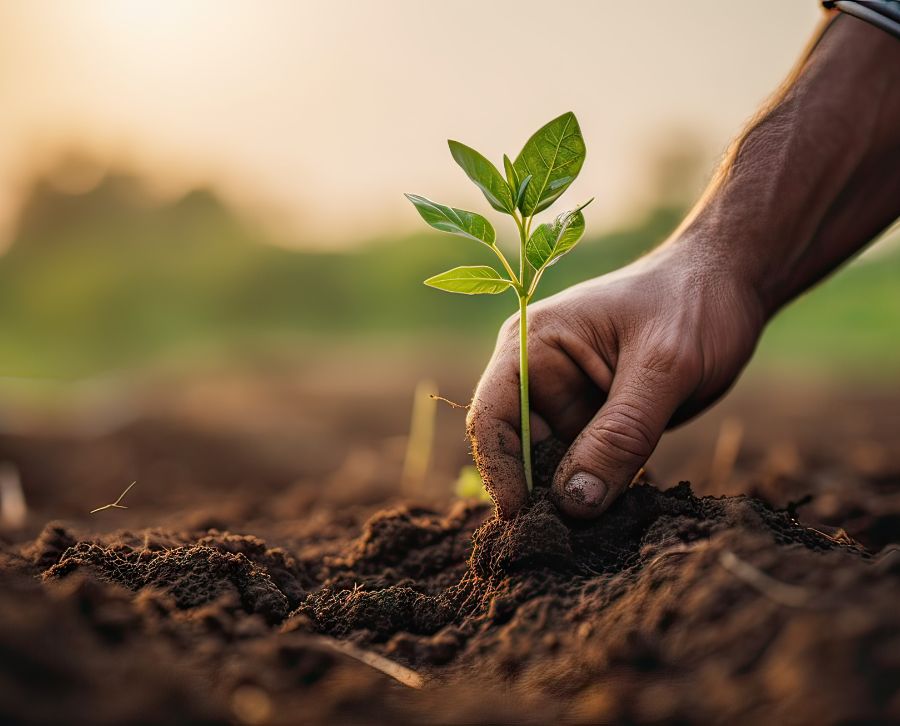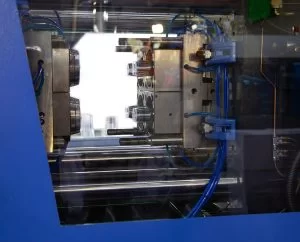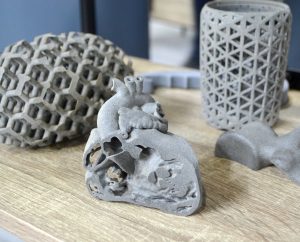In a world in constant evolution, plastics processing is positioned as the best tool to face the environmental and technological challenges of our era. Innovations in this field not only seek to improve the efficiency of industrial processes, but also to reduce pollution in the production and use of materials.
At Atienza & Climent, as experts in innovation for the manufacture of toys, we know the importance of seeking alternatives in manufacturing processes and incorporating new formulas and materials to reduce the carbon footprint we leave on the environment.

Innovation is needed for plastics transformation
Growing awareness of the environmental impact of conventional plastics has highlighted the urgency of seeking sustainable alternatives. In this regard, biodegradable plastics and bioplastics have emerged as promising substitutes, offering an avenue to reduce pollution and plastic waste in our environment.
To effectively address these challenges, innovation becomes a necessity. Here are some key reasons why the plastics transformation process requires continuous evolution:
– Development of new types of plastics: biodegradable plastics offer a solution to the problem of plastic waste persisting in the environment for decades or even centuries. These materials have the ability to decompose naturally, thus reducing the accumulation of waste.
– Advances in bioplastics present an alternative to conventional petroleum-based plastics. These materials offer similar properties to traditional plastics, but with less environmental impact during production and disposal.
– Pollution reduction: Innovation in this area also focuses on methods to reduce pollution caused by plastic waste. From advanced recycling technologies to circular economy strategies, the aim is to minimize its negative impact on our ecosystems.
Moving towards a more sustainable industry is imperative. Innovations in biodegradable plastics, bioplastics and pollution reduction strategies are key steps in this direction.
What are bioplastics?
In the search for more sustainable alternatives to conventional plastics, bioplastics have emerged, obtained from renewable sources such as corn starch, sugar cane, seaweed or even agricultural waste. What distinguishes them from traditional plastics is their natural origin and their ability to decompose biologically.
Innovative companies around the world are leading the way in the production and application of this material. From large corporations to startups, these companies are developing new methods and technologies to make the most of these promising alternatives.
Advanced recycling: innovative technologies
In the fight against the accumulation of plastic waste, advanced plastic recycling is emerging as a vital and evolving solution. Recycling technologies are shaping a new approach to the management of this waste, addressing not only the need to reduce, reuse and recycle, but also to innovate methods that promote sustainability and the circular economy.
One of the most prominent branches of advanced recycling focuses on biodegradable and compostable plastics. These materials, designed to break down naturally and safely, offer an environmentally friendly alternative to conventional plastics. Companies and researchers are working on technologies that enable the effective processing of these materials, thus contributing to the reduction of plastic waste in our ecosystems.
In this regard, innovations in advanced recycling include:
– Plastic upcycling: this technique transforms plastic waste into products of higher value and utility. From creating furniture and clothing to generating new packaging and building materials, upcycling is changing the way we view plastic waste, turning it into useful resources instead of waste.
– Plastic legislation: plays a key role in establishing standards and regulations that encourage responsible recycling practices. Many countries are implementing laws that promote the use of more sustainable plastics, as well as incentives to encourage the circular economy.
These initiatives not only have the potential to significantly reduce our environmental footprint, but also pave the way for a more sustainable and environmentally friendly future.
Benefits of innovation in plastics processing
Innovation offers very important benefits such as pollution reduction, circular economy, and efficient waste management. These advances promote sustainability, drive new business opportunities, and strengthen environmental responsibility.
By embracing innovative technologies, we are moving toward a future of plastics processing where plastics contribute to sustainable solutions, without compromising our environment. Together, we are forging a path toward a cleaner, more balanced and environmentally conscious world, where we are part of the solution, not the problem.





 by
by